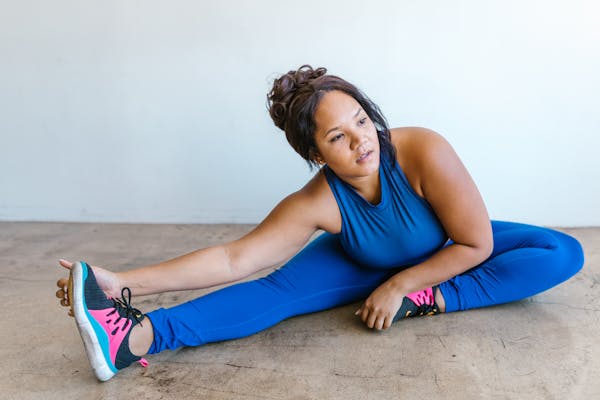Tips for Starting and Sticking with Exercise
Starting an exercise routine can be challenging, especially if you are new to exercise or have taken a break from physical activity. However, regular exercise is essential for maintaining good health and can have numerous benefits, including improved cardiovascular health, increased strength and endurance, improved mood, and reduced risk of chronic diseases.
In this article, we will explore some tips for starting and sticking with exercise to help you establish a regular exercise routine and reap the benefits of regular physical activity.
Set Realistic Goals:
Setting realistic goals is an important aspect of starting and sticking with exercise. Start by setting small, achievable goals that you can work towards over time. For example, you might aim to walk for 10 minutes per day or complete a beginner's workout twice a week.
As you build your confidence and stamina, you can gradually increase the intensity, duration, and frequency of your workouts. By setting realistic goals and tracking your progress, you can stay motivated and see the benefits of your hard work.
Find an Activity You Enjoy:
Finding an activity that you enjoy is essential for sticking with exercise over the long term. Consider trying a variety of activities, such as walking, jogging, cycling, swimming, or strength training, until you find an activity that you enjoy.
When you enjoy the activity, it becomes easier to stay motivated and make exercise a regular part of your routine. Consider joining a class or finding a workout buddy to help keep you accountable and make exercise more enjoyable.
Start Slowly:
Starting slowly is an important aspect of starting and sticking with exercise. If you are new to exercise, it is important to start slowly and gradually increase the intensity and duration of your workouts.
Starting too quickly or doing too much too soon can lead to injury or burnout, which can make it difficult to stick with exercise over the long term. Consider starting with shorter workouts or lower-intensity activities and gradually increasing the intensity and duration over time.
Make Exercise a Habit:
Making exercise a habit is an important aspect of sticking with exercise over the long term. Consider scheduling your workouts at the same time each day or week to help establish a routine.
Creating a regular exercise routine can help to make exercise a habit and part of your daily or weekly routine. Consider setting reminders or using a fitness tracker to help keep you on track and motivated.
Track Your Progress:
Tracking your progress is an important aspect of starting and sticking with exercise. Keep track of your workouts, including the type, duration, and intensity of your workouts, as well as any progress or improvements you make over time.
Tracking your progress can help you stay motivated and see the benefits of your hard work. Consider using a fitness app or journal to track your progress and help you stay on track.
Be Flexible:
Being flexible is an important aspect of starting and sticking with exercise. Life can be unpredictable, and it is important to be flexible and adaptable in your exercise routine.
If you are unable to stick to your regular exercise routine due to scheduling conflicts or other factors, consider finding alternative ways to stay active, such as taking a walk during your lunch break or doing a quick workout at home.
In conclusion, starting and sticking with exercise can be challenging, but with the right strategies and mindset, it is possible to establish a regular exercise routine and reap the benefits of regular physical activity. Setting realistic goals, finding an activity you enjoy, starting slowly, making exercise a habit, tracking your progress, and being flexible are all important strategies for starting and sticking with exercise. By incorporating these tips into your routine, you can establish a regular exercise routine and improve your physical and mental well-being.




Comments
Post a Comment